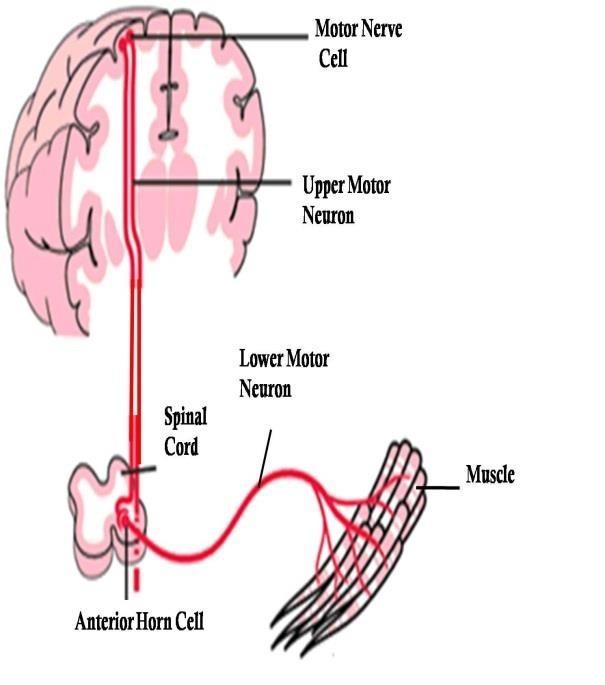What is Motor Neuron Disease (MND) ?
The motor neuron disease (MND) is a group of progressive degenerative neurological disorders affecting only the motor neurons, which are the cells that control voluntary muscle activity. The motor neurons are damaged in the brain and spinal cord. It is also known as anterior horn cell disease (in India), amyotrophic lateral sclerosis (ALS) or Lou Gehrig’s disease (named after a famous baseball player in USA). MND causes muscle weakness which spreads all over the body, resulting in difficulty in walking, hand movements, standing up, bending, speaking, swallowingandbreathing.
Even with all the advancements in the field of medicine, the cause of MND is uncertain. Medical science has not been able to identify a definite cause for this disease but some of the risk factors have been identified. These risk factors may contribute to cause the disease but presence of these risk factors does not always lead to the disease.
MND has also been presumed to have a genetic origin where in the disease may be transmitted from one generation to the other. Some of the genes have been identified  that may cause MND. When there is a gene involvement it is called as familial MND. However MND may be present without any family history (sporadic). But 90% of the times MND is sporadic and only 10% is of the times a definite genetic cause is identified.
that may cause MND. When there is a gene involvement it is called as familial MND. However MND may be present without any family history (sporadic). But 90% of the times MND is sporadic and only 10% is of the times a definite genetic cause is identified.
Motor neuron disease like symptoms can be mimicked in many of the neurological disorders. Careful clinical assessment and thorough investigations are required to diagnose MND at earliest. It is important to rule out other causes that may lead to similar progressive weakness.
Incidence of ALS in USA is 2 per 100000, in Canada it is 2.4 per 100000, in UK it is 2.16 per 100000 however the incidence rate in India has not been Distribution of causes of MND identified.
What causes MND?
Medical science has not yet found a definite cause of MND in 90%of patients, so they are labeled as ‘sporadic’ means no family history of MND. In these cases there is no identifiable genetic defect or any other cause.
The rest 10% are ‘familial MND’ which have family history and the cause is genetic defect [SOD1 or ALS2 or NEFH or SETX or VAPB]. Some familial MND cases occur in children, such as ‘juvenile ALS’, Madras syndrome.
There are hypothesis that some unknown environmental toxins may act as trigger for onset of MND but nothing is yet proven.
Even with all the advancements in the field of medicine, the cause of MND is uncertain. Medical science has not been able to identify a definite cause for this disease but some of the risk factors have been identified. These risk factors may contribute to cause the disease but presence of these risk factors does not always lead to the disease.
MND has also been presumed to have a genetic origin where in the disease may be transmitted from one generation to the other. Some of the genes have been identified that may cause MND. When there is a gene involvement it is called as familial MND. However MND may be present without any family history (sporadic). But 90% of the times MND is sporadic and only 10% is of the times a definite genetic cause is identified.
Who can suffer from MND?
Anybody can suffer from MND. It usually occurs in people of 50-70 yrs of age. But sometimes it can occur at younger age too. Men have higher incidence than women.








